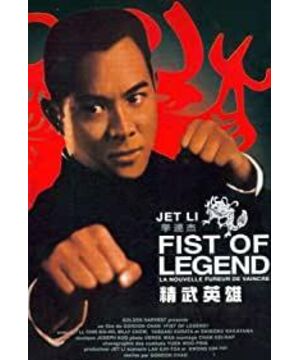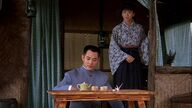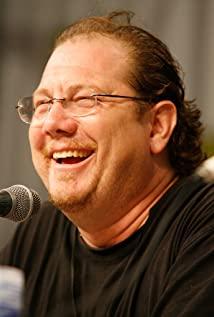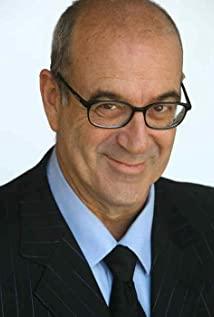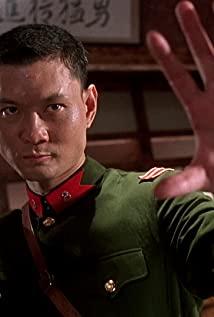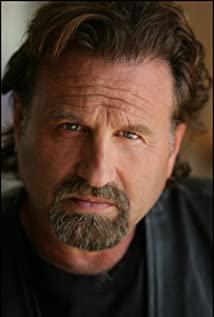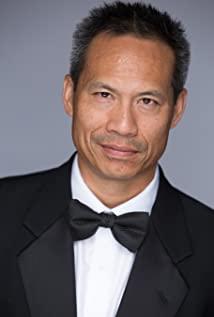"Heroes of Heroes" can be said to be the pinnacle of Chinese action films, known as "CCTV 6 Zhentai Treasure". It is said that Quentin, the most powerful fan of Hong Kong films, has watched this film 40 times, and once pulled the action frame by frame Scene, in "Kill Bill" can really see the results of his efforts. When I was in college, I learned Sanda for a semester with the real "Zhongnanhai Bodyguard" (the coach of the Sanda Team of the Armed Police Headquarters), and then I understood a lot of the action scenes in "Heroes of Jingwu". piece. Years later, after reading the history of imperialism's struggle for hegemony in our dynasty, I realized that the level of sophistication in the literary drama of "Heroes of Jingwu" is actually not inferior to that of martial arts. A kung fu movie actually advocates that "the best way to knock down the opponent is to use a pistol." There must be a problem in there. The core issue of "Heroes of Jingwu" is actually how China faces modernization. "Heroes of Jingwu" may be the only one among the similar "Fighting Foreigners" films that advocates "learning from foreigners to control foreigners", and it is not traditional in action design. Martial arts, but mixed martial arts similar to MMA, these two points make "Fighting Heroes" an anomaly in kung fu movies.
There are also many mysteries hidden in the literary drama of "Fighting Heroes". It is not so easy to see, but if you understand it, it is actually quite exciting. Let's take a look at the pinnacle of such a domestic kung fu film. Take down.
Black Dragon Club and the real historical background
All the viewers of "Heroes of Heroes" will definitely remember such an evil organization as the "Black Dragon Society". I remember that there is a scene in the film where a Japanese person rolls up his sleeves to reveal the black dragon's big flowery arms, which is especially evil. This kind of cartoon-like impression has remained in my memory for many years. When I grew up and looked at it again, I realized that it was a plot made up by myself, which may have been confused with the "Youyou White Book".
The Black Dragon Society not only existed in the history, but also closely related to the Revolution of 1911. After the Sino-Japanese War, I made a "Three Kingdoms Intervention to Return to Liaoning". Since he can't handle Japanese, let Lao Maozi do Japanese, and it turns out that Nima Lao Maozi is even more beast than Japanese! Based on the idea that the smartest Japanese and Russians in the Qing Dynasty are big fools, the policy of the Qing Dynasty has been changed to unite the Japanese to engage in old men. Anyway, the Qing Dynasty will never suffer. The Japanese were indeed incapacitated, and they quickly forgot to spit out the shame of Liaodong. In this context, two passionate Japanese youths less than 30 years old, Uchiyama Ryohei and Touyama Man, established a non-governmental organization Black Dragon Society in Yokohama Pier in 1901, dedicated to driving Russia out of Heilongjiang, so this "black dragon" refers to My hometown Heilongjiang. They did it. The Japanese-Russian war devils fought really well. At the time, it seemed that they really gave Asians a face, and they deserved to be the "hope of the whole village" for Asians.
By the way, whether Japanese or Lao Maozi, their feelings for me in the Northeast are absolutely sincere. My two favorite waltzes, "On the Hills of Manchuria" and "The Waves of Heilongjiang", were written by them in the Far East. When I heard them, I felt homesick. Maybe they were Mao Zi's Far East Cossacks in my last life.
So what specific "anti-China" actions did the Black Dragon Society have? In fact, at most it can be said that Heilong will be anti-Qing and anti-China, but that is a very later thing. Heilonghui was the main sponsor of the 1911 Revolution. It invested in Sun Dapao's Xingzhonghui and Huang Xing's Huaxinghui very early. Originally, Sun Dapao and Huang Xing started revolutions in China to overthrow the Manchu Qing Dynasty. They failed N times, and they all went to Japan when they couldn't get along. Uchiyama Ryohei saw that he couldn't do this. The revolution needed unity, so he merged the two subsidiaries. . Sun Dapao and Huang Xing, who originally looked down on each other, embraced warmly under the pressure of the gold owner, the Black Dragon Association, and established the China Alliance. In accordance with the tradition of respecting the elderly, Sun Dapao became the leader of the China Alliance and embarked on the road of the founding father. In fact, when the Revolution of 1911 was successful, Sun Dapao was washing dishes in the United States, and it was Touyama Man and Uchiyama Ryohei who sent people to the United States to bring him back to China. After the success of the revolution, the advisors of the Nanjing government were all Japanese members of the China Alliance, including Toyama Man and Uchiyama Ryohei. If the actual contribution is made, the contribution of Heilong to the Revolution of 1911 is only a lot more than that of Sun Dapao.
OK, if the Black Dragon Society is an anti-China organization, then Sun Dapao is the agent of this anti-China organization in our dynasty. In the eyes of the Beiyang Department, Sun Dapao is indeed such a character. My idol, Yuan Datou, looks down on Sun Dapao very much. Yuan Datou is a soldier who is training at his own small station, and you, Sun Dapao, take Japanese money and lead a group of Japanese ronin every day. What's the matter?
Therefore, among the different factions in China at that time, the images of Heilonghui and Sun Dapao were completely different. After Sun Dapao abandoned Japan and joined the Soviet Union, the Kuomintang's views on Japan were also divided into two factions. Therefore, in real history, Sino-Japanese relations have been very chaotic, and this chaos continued until 1945. In "Heroes of Heroes", Chen Zhen's attitude towards Japan is actually a bit ambiguous. In the film, there are even four time points for the narrative, corresponding to four historical events, and expressing four kinds of national identities.
1. At the beginning of the film, Chen Zhen learned of Huo Yuanjia's death. Historically, Huo Yuanjia died in 1910. At this time, the Russo-Japanese War had ended, and the Heilonghui had realized the revolutionary ideal, successfully rejecting Lao Maozi in the north of Heilongjiang, and his main work was changed to supporting Sun Dapao. Xuantong abdicated in 1911. If you look at the Black Dragon Society from the perspective of China (I Qing Dynasty) at the moment, then the Black Dragon Society is really not a good bird. Is there any foreign force with more "ulterior motives" than it? !
2. When he saw Chen Zhen off at the dock, Photon said, "The Japanese are fighting Germans in Qingdao!". This sentence implies that the time is 1914. The Japanese went to Qingdao to fight the Germans for the "Japan-Britain Alliance". I tried all the hard work of breastfeeding, but Qingdao actually returned to the motherland in the end, and the Japanese didn't get any farts. I became a good deed like Lei Feng, and then I not only thanked the person who was helped, but also cursed! In our view, this is a diplomatic victory, but in the eyes of Japan, it is a shame! But of course we can't stand on the Japanese side again, and the ass can't be crooked. From the current point of view, whether the Japanese or the old Maozi are invaders, they are closer to the historical education that the audience has received.
3. Chen Zhen saw in the newspaper that the "Japan-Britain Alliance" was abolished. Historically, the Japan-British Alliance was abolished in December 1921. This setting has two meanings. The first is to imply that the pro-British-American faction in Japan lost power in the political struggle in Japan, and the Pan-Asian faction represented by the Black Dragon Society came to power, paving the way for theatrical logic of the Black Dragon Society’s rampage in Shanghai. Second, it means that the relationship between the United Kingdom and Japan is gradually tense, which is a logical preparation for the confrontation between the patrols in the British Concession and the military police in the Japanese Concession.
4. At the end of the film, Chen Zhen successfully escaped the danger. The juniors of Jingwumen asked him where he was going. Chen Zhen replied, "Let's go to the three eastern provinces to have a good time." , which is also in line with most viewers' perceptions of that complicated history.
If there is an audience who cares about the literary drama of "Heroes of Jingwu" as much as I do, the four time points are indispensable in the drama logic. In contrast, the specific era of the film is irrelevant.
Japanese infighting
There are actually two story lines at the core of "Jingwu Heroes", the Japanese line and the Chinese line. The core of the Japanese line is Fujita Go, and the two sides of the conflict are the Japanese democrats and the military in the Black Dragon Society. The core of the China line is naturally Chen Zhen, who is the core of the Chinese infighting. So "Fighting Heroes" is actually a Hong Kong-style duo film similar to "Face Changing". The Japanese line is actually very rich, and it is a pity to ignore it. This is why "Heroes of Heroes" was released in Hong Kong for 16 days and only had a box office of 14 million Hong Kong dollars, but the response in Japan was very good.
The final scene of "Heroes of the Spirit" is Kyoto University. Several Japanese students are shouting in the square in front of the university: "Japan belongs to the people, not the emperor, let alone the army. Long live the people!" It is the arrogant black dragon who will make trouble. On the dock where Chen Zhen left Japan, there were also Japanese democrats spreading leaflets, but the people were cheering for the army more, suggesting that the background of the film is that Japan is gradually moving towards militarism, but there are still people who are fighting against "Taisho Demokra." West" era.
The first fighting scene was in the classroom of Kyoto University. The Japanese from the Black Dragon Club went to beat Chen Zhen, but they were taught a lesson by Chen Zhen, during which they smashed the professor's glasses. This period is not true from a historical point of view. Not only did each imperial university cultivate a generation of elites who stayed in Japan, but even the Army Non-commissioned Officer School has always had a Chinese team. Cai E, Jiang Baili, and Yan Xishan all studied under Lu Shi during this period. Lu Shizhong's Chinese team continued until 1945, but the later students came from the Wang puppet government.
The first fight was mediated by Fumio Fumio, the head coach of the Black Dragon Society, and he lost the pen. It seems that the Japanese leaders do not support their subordinates' nonsense. It is a traditional Japanese art. It reminds me of 918 and 226. There are many social conflicts in Japan, so the solution given by the military is "Go to China!"
The Japanese in the film are quite interesting, and each Japanese character has a Chinese counterpart.
Jie Chuan Longyi, the owner of the Hongkou Dojo Soy Sauce Pavilion who killed Huo Yuanjia, is very interesting. Although his appearance time is short, such a simple supporting role also has a "Character Arc". Chen Zhen went to the Hongkou Dojo to kick the hall. The younger brother went to fight first. This is the rule of the five elements, but it seems that Akutagawa Ryuichi is very despicable. The younger brothers fought only after the fight was almost the same, but after all, their skills were inferior to others. Although the defeated Akutagawa was unhappy, he did not investigate and let Chen Zhen go as promised. He knew from Fujita Gang that he was being used. Huo Yuanjia was actually furious after being poisoned by the military. Unfortunately, he was killed. This is to maintain the dignity of a warrior.
Fumio Funakoshi is obviously the director's favorite character. In the competition with Chen Zhen, Chen Zhen locked his legs and he locked Chen Zhen's throat. In fact, Chen Zhen lost. A lot of what the director wants to say is said through the mouth of Fumio Funakoshi, such as his understanding of martial arts, his understanding of Sino-Japanese relations, and so on. This role is actually closer to the Japanese in the eyes of modern Hong Kong people. They are powerful but not ostentatious, ambitious but not domineering. Such people are decent people. Although they are not their own, they can also be friends.
Even Tsuyoshi Fujita, who appears as the villain, is interesting. This person can be said to be the incarnation of the Japanese military. He is full of only expansion and nothing else. The whole film is deliberately creating various conflicts between Hongkou Dojo and Jingwumen. The plot of the whole film is driven by him, so from a certain To a certain extent, this film is actually a dual protagonist structure. Fujita Takeshi's martial arts can be described as not high, but martial arts is just a means to him, this is a downright pragmatist. As a soldier, Fujita of course knows: "The best way to knock down an opponent is to use a pistol." For him, the purpose of martial arts is only to prove that the Japanese are stronger than the Chinese, thereby enhancing Yamato's national pride and belittling the Chinese. , So Akutagawa Ryuichi must be better than Huo Yuanjia, and it must be seen by the people of both China and Japan. Whether it is really strong or not is the most irrelevant. If starting from this goal, he must defeat Chen Zhen in a duel, so he will use a knife after losing, and of course if he has a gun, he will definitely use it.
The Japanese ambassador is a character that is easily overlooked. He is weak and weak. He always wears a three-piece suit and a round glasses. The costumes and props all suggest that he represents the pro-British and American who have lost power in the government. send politicians. In the end, Chen Zhen's "feigned death" was also his arrangement. The purpose was to avoid war with China. He confronted the military in his own way and maintained Japan's position.
It can be seen that although there are constant contradictions within the Japanese, it is basically a battle of ideas, and it is ideas that determine actions. In contrast, Jingwumen, which is constantly fighting infighting, is all personal battles, and it is a mess.
Chinese infighting
The first scene of the Japanese part is infighting, and the first scene of the Chinese part is also infighting. Chen Zhen returned to China wearing a Japanese student uniform. The driver of the foreign car thought he was Japanese and refused to carry him. He heard that he was going to Jingwumen and persuaded him to learn boxing elsewhere. When Huo Yuanjia died, Jingwumen collapsed and scattered. Before the Men Lingtang was withdrawn, someone came to kick the hall, which was taking advantage of the danger of others. The implication is that the so-called Chinese nation is scattered, and the Japanese have all hit the door, and they are still fighting inside. There is a kind of you to fight Akutagawa Ryuichi.
The first thing Chen Zhen did in the mourning hall was to wear filial piety to Master Huo Yuanjia. The traditional Chinese god of war is Guan Gong. Loyalty and filial piety are the most precious qualities in traditional values. The second thing is to take off the "forbearance" in the mourning hall. People are domineering on our Chinese soil because we have endured it for too long." Then he rashly went to Hongkou Dojo to find Akutagawa Ryuichi. In fact, there is a problem with the drama logic in this plot, but it was solved by cleverness. Strictly speaking, "Heroes of Heroes" is a remake. The downside of the remake is that the audience knew before watching the movie that Huo Yuanjia was not inferior to others, but was poisoned by the Japanese. But here, it's a good thing to know this key plot in advance. If Huo Yuanjia really encountered a master bloody arena, wouldn't Chen Zhen become an unreasonable bastard? The character building was a complete failure.
After the defeat of Akutagawa Ryuichi, the China Line actually officially started. China Line is actually a suspense film, revolving around who poisoned Huo Yuanjia. From "Fighting Heroes" to the recent "Eight Hundred", the core value of Chinese anti-Japanese films is that China is a big country, and everyone comes from all over the world, but we are a community. Once it has risen to the height of the whole nation, then finding out the traitor and unifying the mind has become the core of all anti-Japanese films. This core is reflected in "Heroes of Jingwu", and it became the person who was pulled out from Jingwumen to poison Master Huo. This is a wonderful idea.
Except for "loyalty and filial piety", Chen Zhen embodies almost all the advantages, and it can be said that he is an imaginary model of modern Chinese:
1. Respect science. Because he knew that Akutagawa Longyi was not Huo Yuanjia's opponent, Chen Zhen asked a British doctor to test the body, and encountered a little resistance from Jingwumen. It can be seen here that the director is actually skeptical about using martial arts to invigorate the national spirit. If "the best way to knock down the opponent is to use a pistol." Said that they obviously cannot "knock down the enemy", so the urgent need is not to practice martial arts, but to develop scientific and cultural knowledge. The dispute between Jingwumen and Hongkou Dojo is obviously nothing to the British, why do they always look for the British to patrol? Or because they have guns.
2. Tolerance to fellow students. Chen Zhen's return is very exciting for Jingwumen, and his apprentices are willing to learn practical kung fu with him. But in fact, not everyone wants to see Chen Zhen come back, such as Nong Jinsun and Huo Tingen. After all, Chen Zhen is not named Huo. He is so strong that he actually challenges the Huo family's position in the elite martial arts. The enemy is still fighting infighting, this is a traditional art similar to the Japanese "Xia Ke Shang". Although Chen Zhen was finally pushed out, he did not hold grudges. This is the director's reflection on the traditional art of infighting.
Chen Zhen in "Heroes of Heroes" is actually a mixed race, and has been recognized as a Japanese many times in the film. The costumes in the film are very interesting. The Japanese wear kimonos in addition to military uniforms. The Chinese all wear long gowns. The only two exceptions are Chen Zhen, who always wears Japanese school uniforms, and the Japanese ambassador, who wears a three-piece suit. The two represent the future development direction of the two countries. , student uniforms represent China and learn with an open mind, and British three-piece suits represent leaving Asia and joining Europe. If Chinese people have the spirit of science and tolerance, they are generally qualified to be a modern citizen, and China can also become a modern country. In the end, Huo Tingen came to Chen Zhen and taught Chen Zhen the "Misong Boxing", which is not passed on to outsiders. This is to let go of the prejudice of infighting. The traitor of Jingwumen has also been caught, and Jingwumen can unite as one. After completing these two points, it doesn't matter whether you can really beat Fujita Takeshi.
At the end of the film, the Chinese onlookers at the gate of the prison are still wearing long gowns, which shows that they have not been fully awakened. And Chen Zhen and the brothers of Jingwumen have all put on suits and hats, symbolizing the awakening from ignorance.
Traditional Wushu and National Spirit Construction
Chen Zhen in "Heroes of Jingwu" also showed a tolerance for letting go of all stereotypes about martial arts. In addition to fighting against Akutagawa Ryuichi, Chen Zhen is not fighting Huojiaquan, at least not pure Huojiaquan, but a comprehensive mixed martial arts. I can see that there are boxing, wrestling, taekwondo, Muay Thai, Brazilian Jiu-Jitsu and karate. The move, in the 1990s, this style of action can be said to be very pioneering, and it also caused the audience who were used to watching "Once Upon a Time" and "Fang Shiyu" to not buy it, and the box office failed. The reason why martial arts is called "China" is to emphasize its uniqueness. The internal combustion engine that Chen Zhen studied at Kyoto University at the beginning did not distinguish between Japanese internal combustion engine and Chinese internal combustion engine, and it has long been compatible in the field of science and technology. If martial arts and science pay attention to "inclusiveness" and learn what is the strongest, then the so-called Chinese martial arts will no longer play the role of boosting the national spirit. Is there still a need for the existence of Jingwumen? If karate proves to be the strongest martial art, the Chinese will learn karate for the sake of "strengthening the country and the race". Is it a "traitor's behavior"? If so, is Chen Zhen a "traitor" when he went to Japan to learn internal combustion engines? The film has clearly given the answer, this kind of complacent is illogical.
Traditional martial arts is not unique to China, almost all countries have traditional martial arts, because no matter which ethnic group lives to this day, it is fought by mountains of corpses and blood. Japan has karate, South Korea has taekwondo, France has Kickboxing... In addition to hand-to-hand combat, traditional martial arts in some countries also focus on equipment. For example, the Poles regard the saber as a national treasure, the Germans like the two-handed long sword, and the British use the long sword. The bow is famous all over the world (Scotland disapproves)...but all "traditional martial arts" without exception are developed in the direction of sports. Today, judo, taekwondo and archery are all Olympic events. If you don't see Japanese, Koreans, and British people performing poorly in these events, the whole nation will die, and there will be no spectators because Japanese athletes lose to judo. Western athletes mocked the Japanese as "the sick man of East Asia".
After all, to regard martial arts as a "national quintessence" that cannot be challenged is actually a manifestation of lack of self-confidence. Although Chinese martial arts are well-known, but from the attitude of seeking truth from facts, Japanese martial arts have made the greatest contribution to world fighting. During the Russo-Japanese War, the Russians discovered that the tall and big Cossacks could not beat the small Japanese in hand-to-hand combat, so they learned judo humbly and invented sambo-style wrestling; the Japanese also brought jiu-jitsu to Brazil and developed different styles. Brazilian Jiu-Jitsu in judo does not prevent Brazilians from being proud; the Japanese also brought karate to the United States and Europe, and took root to form the American and European schools. The path of Wing Chun to Europe and the United States is similar to that of karate. The German police special forces SEK (Spezialesatzkommando) practice the modified European Wing Chun, but this is not because Wing Chun is the strongest, but because the police emphasize the minimum force (Minimum force). ) principle, emphasizing on subduing opponents rather than knocking them down, to a certain extent just proves that Wing Chun is not a powerful punch. If it's boxing, you don't need to hit so many punches, and you can hit one punch accurately, even if it's a relatively light front hand punch, KO opponents are not too big a problem.
In "Heroes of Jingwu", Chen Zhen broke the entanglement between the martial arts tricks of various countries. In fact, he broke the fantasy of China's "celestial kingdom" and started the modernization process. As long as you are willing to learn and learn well, you are still the strongest, but if you don’t learn it, you will fundamentally lose the possibility of becoming stronger. Unfortunately, our positioning of traditional martial arts has not fundamentally changed until today. It is still linked to national pride, and now it is even more so. Trapped in a "Fujita Go"-style "can't lose" vicious circle. If it weren't for the fact that we are already a society ruled by law, it is not impossible for various traditional martial arts masters to poison their opponents like Fujita before the competition. Of course, there is an easier way to make yourself invincible, and that is to simply stay out of the ring. Master Ma Baoguo's brain is not very good. He really wants to compete with Sanda boxing.
Hong Kong people's self-perception
The location of Jingwumen in "Heroes of Jingwu" is located in the British Concession. Needless to say, Jingwumen is obviously the emotional projection of HK people, not the emotional projection of Chinese people. Of course, mainland audiences may not be sensitive to this. A little, but I'm sure HK viewers can.
The role played by Britain (Britain and America) in modern Chinese history is quite complex. One fact is that from 1859 to 1950, the head of the General Taxation Department of China Customs was held by the British (the last one was American), and some of them played a very important role in modern Chinese history. For example, Hurd directly helped to organize the the Peiyang Navy, which shows that the relationship between China and the United Kingdom (the United States) was quite close before 1945. The British have always played the role of "mediators" in each of China's foreign wars after the Second Opium War. During the two wars, China also stood firmly with the United Kingdom (the United States). In fact, in several Sino-Japanese conflicts, the United Kingdom was partial to China. For example, after World War I, the United Kingdom and the United States took a lead on the issue of returning Germany's interests in Qingdao to China or Japan. To be honest, Japan played a much bigger role than us in the First World War. I only sent some Chinese workers, while the Japanese entered the war because of the "British-Japanese Alliance", in order to help the British Empire eliminate the German Pacific Fleet in Qingdao. The dog sticks have been brought out, and when it comes to meritorious deeds, the Japanese don't get anything, and the benefits are all given to China! In our opinion, this is a diplomatic victory, but in Japan’s eyes, it is a humiliation, and the British were “whore for nothing”, which directly led to the defeat of the pro-Britain-American faction in Japan after the First World War, and the rise of pan-Asianism. "The Incident" series. The title of "Japan-British Alliance" abolished also appeared in "Heroes of Jingwu". It was precisely because of the pro-British and American policy of the Republic of China that it tasted the sweetness in World War I, Chiang Kai-shek had always hoped for the "mediation" of the United Kingdom and the United States during World War II, and did not declare war on Japan. . The recently released "Eight Hundred" is actually related to the British. It has no military significance if the Sixing Warehouse can't be defended. The only political significance is to show it to the world to win more international (British and American) aid.
In "Heroes of Heroes", the meaning of the British and British Concession patrols is similar to that in history, and they are also the mediators of the conflict between China and Japan. Escorted Chen Zhen when he went to Hongkou Dojo to play the gym; invited a rented western doctor to open the coffin of Huo Yuanjia for autopsy, which proved that Huo Yuanjia was poisoned; When the deal was over, it was also the British Concession patrol who came forward to detain Chen Zhen, and then publicly tried the Akutagawa Ryu case; at a critical moment in the case, it was the British lawyer who found Mitsuko Yamada, which calmed down the storm; finally, after Fujita's death, Another British Concession patrol officer rushed to the Hongkou Dojo with guns to confront the Japanese army. It can be said that both the patrols in the British Concession and the judges in the British Concession play a positive role. So why are Chinese patrols in the British Concession on call like Nong Jinsun's domestic slaves? Here's what the patrol chief said: "I'm not a patrol now, I'm telling you I'm Chinese!"
The last line is very interesting. "Fighting Heroes" was filmed in 1994, which was a famous harvest year in film history, but more importantly, 1994 was still three years away from the return of Hong Kong. As one of the richest, most economically developed and highest living standards in the world, HK It is the well-deserved "jewel in the crown" of the British Empire, so can the people on the pearl be counted as British? To a certain extent, the British Concession patrol played by Yuan Xiangren is a kind of sustenance for the identity of HK people. HK people are not British, but are they Chinese? Even the Chinese are different Chinese, the Chinese who got rid of ignorance first.
First, the patrolmen have guns. The reason why Jingwumen has repeatedly turned to the British Concession for patrolling is because they have guns, which are better than the brothers of Jingwumen. In "Heroes of Heroes", there are many scenes of British Concession patrolling with guns to blackmail the Japanese, indicating that the forces on both sides are equal, and it is still the sentence "The best way to knock down the opponent is to use a pistol." An ordinary patrolling took one Twenty times Mauser easily gained more combat power than Chen Zhen, indicating that guns are the direction of modernization, not martial arts. The patrolling with guns (HK people) entered modernization earlier than the warriors of Jingwumen (mainland), and this is the development direction of Jingwumen (mainland).
Secondly, the capital behind "Heroes of Heroes" are mainlanders, and the market they value is also the mainland market. Since the capital and the market are in the mainland, it is necessary to please the mainland's money and audience. In the 1990s, Hong Kong films began to embrace the mainland market after losing the most important Taiwan market. In the 1990s, a large number of important films in mainland China featured HK filmmakers. "Alive", "High Red Lanterns", "Farewell My Concubine", "New Dragon Inn", "Evil in the East", "Once Upon a Time in the Lion King's Contest for Hegemony", "Tang Bohu's Autumn Fragrance", etc. For Hong Kong joint venture films, some Hong Kong films invest in mainland main creators, and some are Hong Kong films entering the mainland market. There are two production companies for "Heroes of Jingwu" - Jiahe and Zhengdong. Among them, Zhengdong is Jet Li's film company. A total of 5 movies have been produced. "Heroes of Jingwu" is the last one. The producer Li Yangzhong is Mr. Jin Yong. another name. The main creative team of "Fighting Heroes" is undoubtedly dominated by Hong Kong filmmakers, but the management has become Jet Li, and the main market has also become the mainland market. Combined with the environment of the return in 1997, the British Concession patrol said " I told you that I am Chinese" is not difficult to understand at all, this is not only to please the capital, but also to please the market, it is not ashamed.
But there are still many places in the film where the ignorant mainlanders are dissed openly and secretly, for example, "The mouse moved in first, but we actually harassed him." Who are you calling a rat? ! If you understand all these plays, it is not difficult to understand why this masterpiece was taken off the shelves after only 16 days of release, and it will be more interesting to watch this movie in 2020.
Chinese woman vs. Japanese woman
One of the particularly bad things about Chinese culture is that men always like to put the blame on women when they can't do things well. It's often because of women that monarchs and kingdoms fall, so don't do too many things like Zhou Wang, Zhou You, Wang Dong Zhuo, and Lu Bu. "Jingwu Heroes" also mentioned this problem, and then successfully resolved it.
The most impressive female character in "Heroes of Heroes" is undoubtedly Mitsuko Yamada, played by Nakayama Shinobi. She is a perfect match for Chen Zhen in the film, so that Nakayama Shinobu has a crush on Jet Li or something, which is the number I know. Not much gossip. The reason why Yamada Mitsuko's character is pleasing is that, first of all, appearance comes first. She is so beautiful, she is no worse than her sister Nakayama Miei; secondly, she was born in a famous Japanese family, and she can directly command black dragon club executives like Funakoshi Fumio to satisfy the audience. "Celebrity" imagination; in the end, her character conforms to all the virtues of women in Chinese culture, she is very Chen Zhen in any situation, even if she falls to the point of "Homeless", she will not abandon or even complain. Taken together, this character satisfies all the wonderful fantasies of all Chinese male audiences about Japanese girls. Chinese guys marrying foreign girls has always been considered to be a matter of "raising our country's prestige". Of course, the first-class foreigners are European and American whites, and the second-class are Japan and South Korea. If they find black people or Southeast Asia, they will look down on them. And if Chinese girls find crooked nuts from Europe, America, Japan and South Korea, most of them will be named easy girls. If they find a black person, the American black person is fine, and the African black OMG will basically be harassed by the Internet! This is reverse racism that is almost ubiquitous in reality.
In Jingwumen, where national hatred and family hatred are mixed, it is naturally incomprehensible for Chen Zhen to find a Japanese wife. Who should be the owner of the museum is always a question, so now Huo Tingen has a "legitimate" reason to drive Chen Zhen out of Jingwumen, so the two have a wonderful competition between traditional martial arts and free fighting. You see, the key plot of the entire film is driven by the Japanese. If Chen Zhen is not kicked out of Jingwumen, then once Jingwumen is destroyed, the responsibility can be put on Yamada Mitsuko, just because she is Japanese. This kind of "original sin" theory was criticized in "Heroes of Jingwu", but unfortunately, foreigners in the Kung Fu films that hit the foreigner series have all become facialized characters without exception, and the "original sin" theory has been accepted again. It's a throwback, both narratively and ideologically.
Compared with the Japanese girl Mitsuko Yamada, the Chinese girl Xiaohong has a much weaker sense of existence. This role is quite in line with the image of "beautiful troubles". On the night when Akutagawa Ryuichi was killed by Fujita and plotted to blame Jingwumen, Huo Tingen was left in the brothel by Xiaohong; on the night when Chen Zhen was kicked out of Jingwumen, Hongkou Dojo came to write a challenge letter on behalf of Fumio Funakoshi, Huo Tingen Still fooling around with Little Red in the brothel. Xiaohong was also inexplicably accepted by Nong Jinsun, so she went to Jingwumen to tip off the news? This is so unconvincing. You don't accept the Japanese ladies, but Congliang, a woman from the past, was accepted by Jingwumen all of a sudden. What's the situation! I don't quite understand what the screenwriter's intention is with this arrangement.
Tucao for a moment
Although there are no flaws in the literary and martial arts of "Heroes of Jingwu", there are a lot of flaws in clothing and music, and they often appear in dramas.
1. Japanese military uniforms, this is simply powerless to complain, the anti-Japanese dramas are all about 100 streets in "Heroes of Jingwu", which is the Japanese Imperial Army, it is completely the Vietnamese People's Army, the color and tailoring are similar, the temperament is very obscene. If you think about it a little bit, the sense of oppression of the Japanese will be much stronger.
2. When Chen Zhen got on the boat at the pier, the music was actually "March of Warships"! The army boarded the ship with the accompaniment of the navy red deer, which is a great shame for the Japanese army!
View more about Fist of Legend reviews


